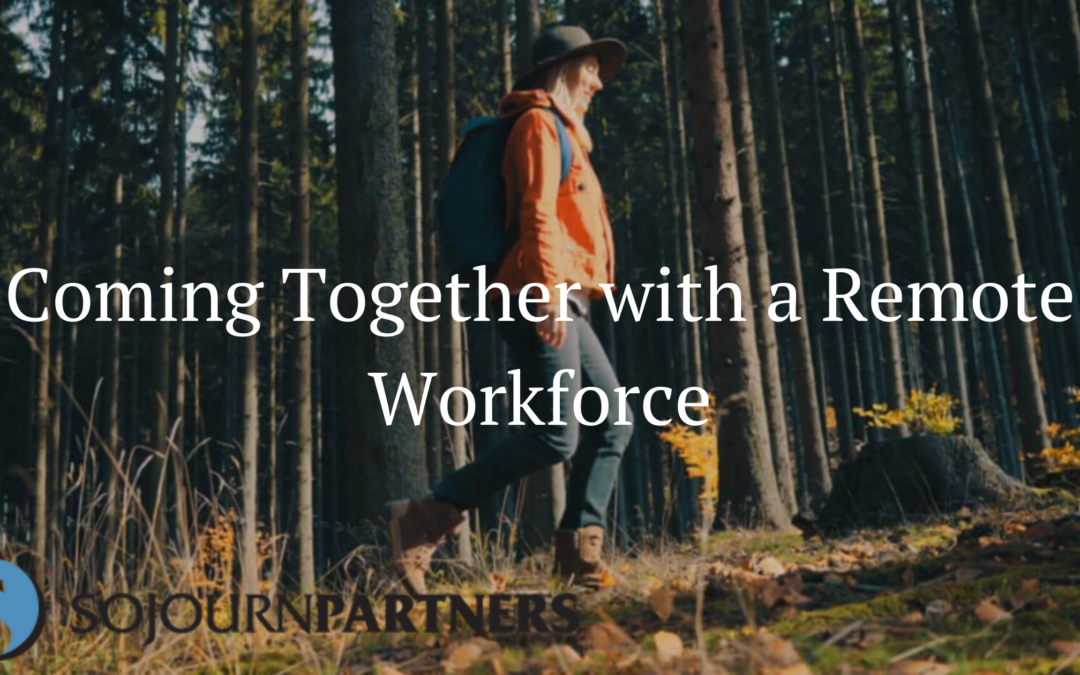This summer, Axios wrote a piece on the future of corporate retreats and why they are needed now more than ever. As more companies stay with a remote-first workforce, engaging employees in a sense of community/connectedness is more difficult. In the pre-COVID office paradigm, you could swing by someone’s desk and chat. You could discuss your personal lives and deal in real-time about workplace projects. However, as virtual meetings have taken the place of the conference room or water cooler, the personal, intimate nature of the office has gone missing. Those formal/informal connections were where leaders could gauge productivity and get a sense for how the office was functioning. Now, the virtual realities we communicate in have driven a physical and metaphorical divide in our ability to connect on a deeper level than we had previously. How do we get that back and how do offsite events play into that?
Productivity
It would be negligent to say that 100% of all workers have been, are, or will be productive in a remote work environment. However, there are studies that indicate most workers have been more productive working in a remote environment. According to pre-pandemic management practices, that would seem counter intuitive. How can an employee be productive if their manager isn’t standing over them to make sure they are working? Well, the work-life balance that many employees felt they were lacking has, in fact, rebalanced itself. No longer are employees commuting for hours each week – that time is now spent making breakfast or dinner for their family or finding time to focus on their physical and mental well-being. These employees are discovering a renewed commitment to their work because they are happy, and their needs are being met by a renewed sense of stability in their lives.
Loss of Creativity
Hundreds and hundreds of organizations have proven over the course of the last nearly three years that working remotely or in a hybrid format can be successful. You can retain your top talent and increase productivity. However, living in a constant virtual environment can stifle organizational creativity. It also impacts our abilities to read social cues and react to non-verbal cues from colleagues because most of us just stare at ourselves when we are on camera. This is supported by recent research that suggests working strictly in a virtual environment makes your teams much less creative. So, scheduling in-person events is critical to fostering organizational creativity and reinvigorating the flow of ideas to critical business issues.
In-Person Functions
The new research on the loss of creativity means your organization is probably not as skilled at problem solving as it used to be. This is where offsite or focused live events have a renewed sense of purpose. When most people think of retreats or offsite events they think of fun and games and getting away from work. However, the new version of corporate or organizational retreats is more of a work/play balance. Given that physical and metaphorical divide previously discussed, it is important that employees have a range formal and informal opportunities to network and reconnect with colleagues they may not have seen in person for almost three years. However, there should also be focused and dedicated time to come together as an organization to tackle real issues.
Tackle the Tough Stuff
In these offsite or retreats, there should be scheduled time to focus on issues facing the organization that remain unaddressed. That may include strategy sessions on new products or services or fixing a lingering roadblock. These in-person functions may be a great place to reinvent customer presentations or sales pitches. This new iteration of retreats and off-site events is more about finding a renewed sense of invigoration than patting each other on the back. Tackling real organizational challenges rather than just team building activities at these events will create a stronger bond among colleagues and deeper their sense of commitment to each other and the organization. It is in the “working together” for the company benefit is where real lasting trust and social bonds are realized. So, at your next retreat, consider building in strategic thinking, creative solution exercises, an building alliances about real challenges and solutions.
Wrap Up
If we have learned anything about an organization over the last few years, it is that everyone is more adaptable than we previously thought. Some organizations have transformed their operations overnight to survive and others have thrived in this new remote work environment. No matter which one your organization is, you have learned to adapt and grow in ways not imaginable in 2019. Regardless of your successes or failures in the remote environment, bringing your teams together has new meaning. We aren’t just bonding over cocktails at the bar, we are bonding over our commitment to the organization and sharing our passion for delivering the best versions of ourselves and our teams.

